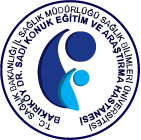ABSTRACT
Conclusion:
There is not a specific indicator of disease severity in patients with HSP, and patients with GI involvement. Laboratory studies reflected the acute, systemic nature of disease, but generally were of limited diagnostic value. Prednisolone is recommended in cases with severe GI involvement in order to prevent surgical complications. Despite severe gastrointestinal symptoms in some HSP patients, prognosis of GI involvement in children with HSP is good.
Results:
There were 18 boys and 12 girls with ages ranging from 4 to 14 years (mean 8.6 years). The dominant clinical features of HSP were purpura (100%), GI involvement (70%), arthritis (63.3%), and renal involvement (43.3%). Gastrointestinal involvement was seen in 21 patients (70%), with abdominal pain (% 100) and GI bleeding (47.5%). Prednisolone therapy (2 mg/kg/day for one week) was used in 10 patients with severe abdominal pain and GI bleeding. Laboratory findings revealed anemia (16.6%), leukocytosis (16.6%), thrombocytosis (43.3%), high-erythrocyte sedimentation rate (83.3%), elevation of serum C-reactive protein (63.3%), complement 3 (43.3%), and immunoglobulin A (10%) in all patients with HSP. We found, in cases with GI involvement, anemia, leukocytosis, thrombocytosis, high-erythrocyte sedimentation rate, positive occult blood test in stool, elevation of serum C-reactive protein, complement 3, and immunoglobulin A. Laboratory findings were not associated with GI involvement. Only, platelet counts were associated with severity of GI involvement. No correlation between clinical score and laboratory findings was observed in any of the patients with HSP and patients with GI involvement.
Material and Methods:
This prospective study was conducted to analyze the clinical and laboratory features. Hemoglobin level, white blood cell and platelet count, occult blood test in stool, urinary analyse, erythrocyte sedimantation rate, serum level of C-reactive protein, complement 3 and immunoglobulin A were measured for all patients. The relationship between the severity of clinical syptoms (clinical score) and laboratory data was evaluated. Patients with severe abdominal pain and GI bleeding were treated with prednisolone therapy.
Objective:
Henoch-Schönlein purpura (HSP) is one of the most common vasculitis syndromes in childhood. Gastrointestinal (GI) manifestations of HSP commonly include abdominal pain and gastrointestinal bleeding. In this study, clinical and laboratory features with results of treatment in 30 children of Henoch-Schönlein purpura with GI involvement, are presented.



